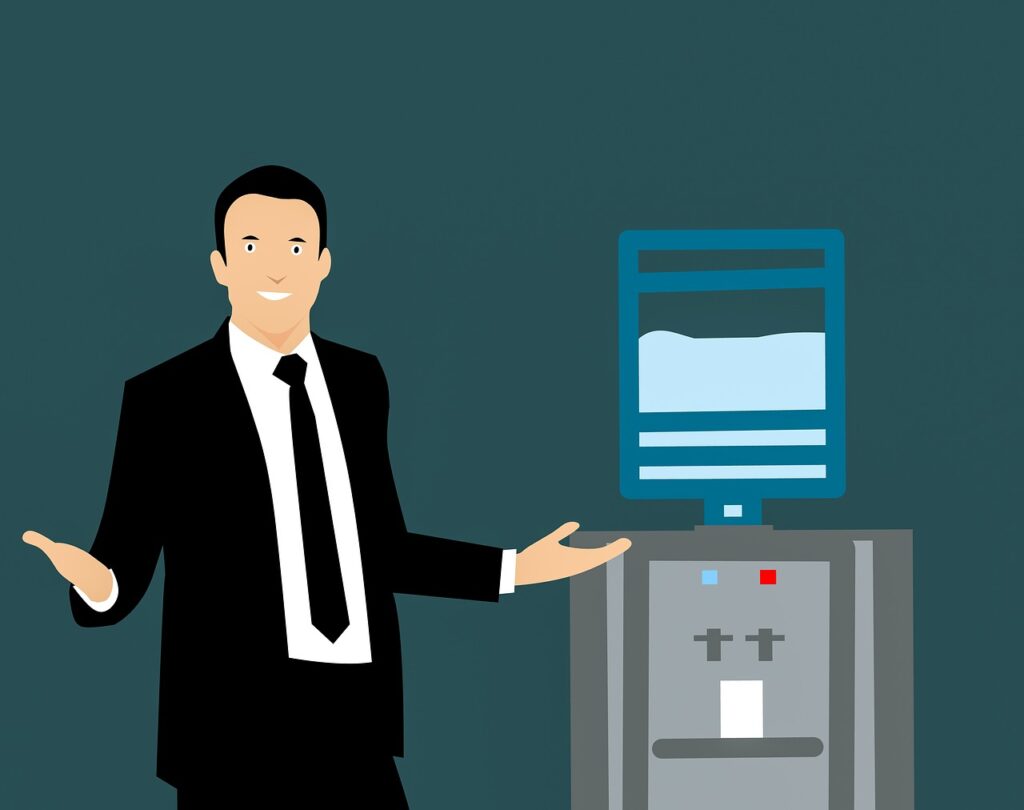Introduction
A water purifier is a device or system designed to remove contaminants, impurities, and potentially harmful substances from water to make it safe and suitable for consumption. It’s used to improve the quality of tap water, well water, or other water sources by reducing or eliminating contaminants such as bacteria, viruses, sediments, chemicals, heavy metals, and more. This article, with inputs from our friend at PG Used Appliances, explains the uses, downsides, and features of a Water Purifier.

Uses
- Safe Drinking Water: Water purifiers ensure that the water you consume is free from harmful contaminants, protecting your health and well-being.
- Improved Taste and Odor: Water purifiers can enhance the taste and smell of your water by removing unpleasant odors and flavors caused by pollutants.
- Reduced Health Risks: By eliminating bacteria, viruses, and other pathogens, water purifiers help lower the risk of waterborne diseases and infections.
- Removal of Chemicals and Heavy Metals: Some water purifiers are designed to remove chemicals like chlorine, as well as heavy metals like lead and mercury, which can have adverse health effects over time.
- Environmental Impact: Using a water purifier reduces the need for bottled water, helping to decrease plastic waste and the carbon footprint associated with bottled water production and transportation.
- Convenience: Having a water purifier at home means you don’t have to rely on purchasing bottled water or boiling water to make it safe for drinking and cooking.
Downsides
- Initial Cost: Depending on the type and complexity of the system, water purifiers can have a significant upfront cost, especially for more advanced models.
- Maintenance: Water purifiers require regular maintenance, such as changing filters, to ensure their effectiveness. Neglecting maintenance can lead to reduced filtration efficiency.
- Limited Effectiveness: Not all water purifiers can remove all types of contaminants. Some might be better at removing certain impurities than others.
- Wastewater Generation: Some water purification methods generate wastewater, which might require proper disposal.
- Energy Consumption: Some advanced purification methods, such as reverse osmosis, can consume significant amounts of energy during the purification process.
Essential features
- Filtration Technology: Different types of filtration technologies, such as activated carbon, reverse osmosis, UV (ultraviolet) disinfection, and more, offer varying levels of contaminant removal. Choose a technology that suits the types of contaminants in your water.
- Capacity: Consider the daily water consumption in your household when choosing a purifier. Make sure the purifier can meet your family’s needs without frequent refills or filter changes.
- Certifications: Look for water purifiers that are certified by reputable organizations like NSF International, which test and verify the performance of water treatment products.
- Filter Lifespan: Check the estimated lifespan of the filters and replacement costs. Longer-lasting filters can reduce maintenance and operating costs.
- Ease of Installation: Choose a purifier that is easy to install and compatible with your water source (tap, well, etc.).
- Ease of Maintenance: Opt for a purifier with easily replaceable filters and user-friendly maintenance procedures.
- Warranty: A good warranty indicates the manufacturer’s confidence in the product’s performance and durability.
- Water Pressure Requirements: Some purification methods, like reverse osmosis, may require a certain level of water pressure to operate effectively.
- Indicator Lights: Some purifiers have indicator lights that notify you when it’s time to change filters or perform maintenance.
- Bypass Option: Some purifiers offer a bypass option, allowing you to switch between purified and untreated water for specific tasks.
Summary
When choosing a water purifier, consider your water quality, budget, and specific purification needs to ensure you select a system that will effectively provide safe and clean drinking water for you and your family.